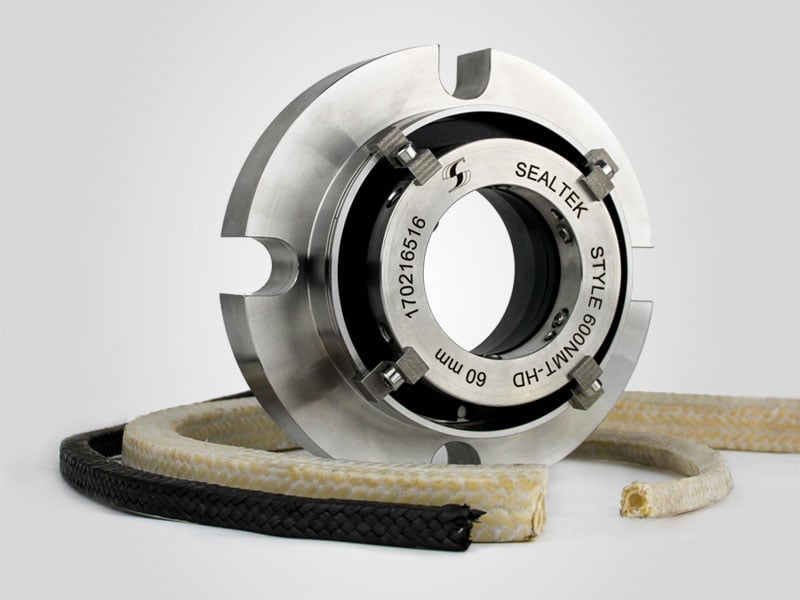
Mechanical seals and gland packing are two common sealing solutions used in various industrial applications. Both options have their own advantages and disadvantages, and choosing the right one for your specific application can be a challenging task. In this article, we will explore the differences between mechanical seals and gland packing, and help you make an informed decision on which option is the best fit for your needs.
What is a Mechanical Seal?
A mechanical seal is a device that is used to prevent leakage between two rotating or stationary components in a machine. It consists of two main parts: a stationary part and a rotating part. The stationary part is usually attached to the machine casing, while the rotating part is attached to the shaft. The two parts are held together by a spring, which creates a seal between them. Mechanical seals are commonly used in pumps, compressors, and other rotating equipment.
Advantages of Mechanical Seals:
- Provide a more reliable seal than gland packing
- Require less maintenance than gland packing
- Can handle higher pressures and temperatures than gland packing
- Can be used in a wider range of applications than gland packing
Disadvantages of Mechanical Seals:
- Can be more expensive than gland packing
- Require more skill and expertise to install and maintain than gland packing
- Can be more prone to failure if not installed or maintained properly
What is Gland Packing?
Gland packing, also known as packing or stuffing, is a traditional sealing solution that has been used for many years. It consists of a series of rings made from materials such as graphite, PTFE, or aramid fibers, which are packed tightly around a shaft or valve stem. The rings are compressed by a gland, which creates a seal between the shaft and the casing. Gland packing is commonly used in pumps, valves, and other static equipment.
Advantages of Gland Packing:
- Can be more cost-effective than mechanical seals
- Can be easier to install and maintain than mechanical seals
- Can be more forgiving of misalignment or vibration than mechanical seals
Disadvantages of Gland Packing:
- Can be less reliable than mechanical seals
- Require more frequent maintenance than mechanical seals
- Can be more prone to leakage than mechanical seals
- Can be limited in their ability to handle high pressures and temperatures
Conclusion:
In summary, both mechanical seals and gland packing have their own advantages and disadvantages, and the choice between the two will depend on your specific application requirements. If you need a reliable seal that can handle high pressures and temperatures, mechanical seals may be the better choice. However, if cost-effectiveness and ease of maintenance are your priorities, gland packing may be the way to go. Ultimately, it is important to consult with a sealing expert to determine the best solution for your needs.

